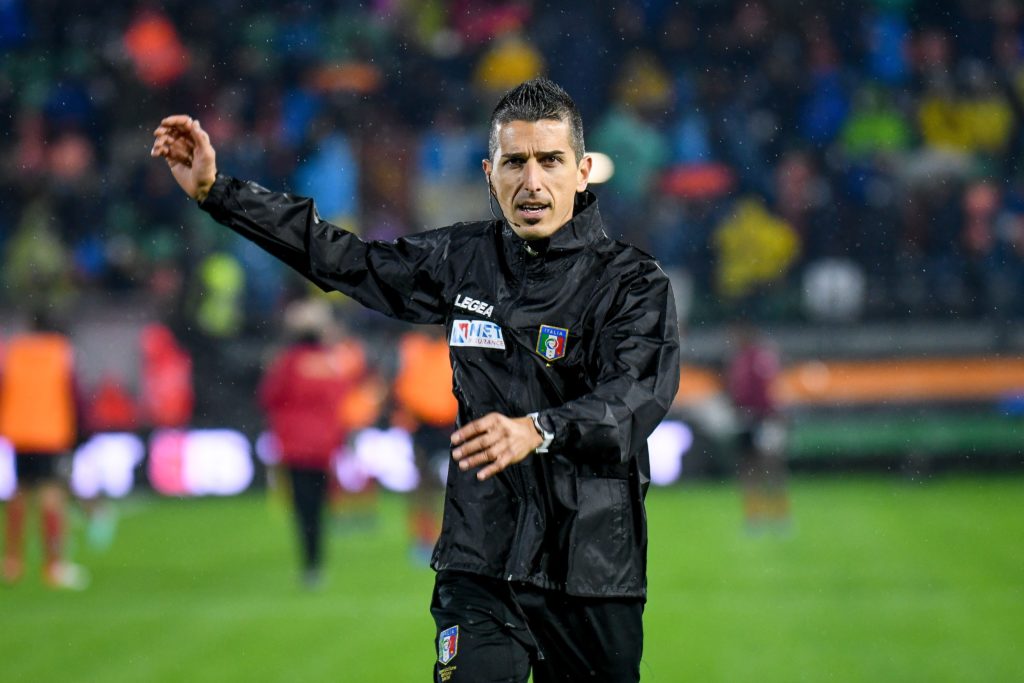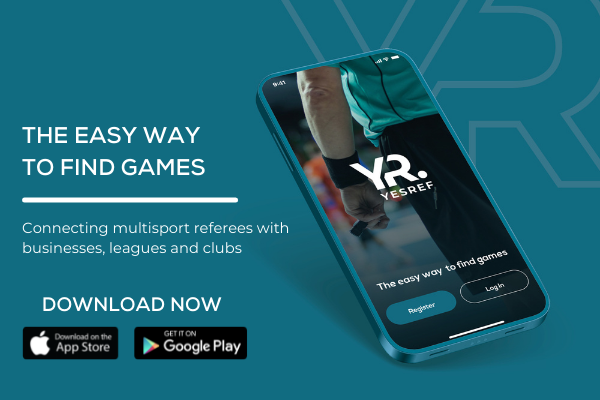With 2022 just around the corner, resolutions and goals are beginning to enter the thoughts of those looking to make positive changes to their lives and their refereeing careers over the coming 12 months. So, what is goal setting?
Goal setting is a mental training technique that can increase a referee’s commitment towards achieving a personal goal, such as gaining a promotion. Having a short or long-term goal can encourage an official to work harder, be more focused on the task and overcome setbacks more easily.
Goal setting is a technique widely practiced for over 50 years and it effects performance in four main ways:
- Focuses attention.
- Mobilises effort in proportion to the demands of the task.
- Enhances persistence.
Encourages the individual to develop strategies for achieving their goals.
Outcome Goals
Outcome goals are to do with winning or performing better than someone else. They refer to the desired result, e.g. selected to represent your county by being appointed to officiate on a cup final. These can be highly motivating long-term goals, but as they not under the individual referee’s control and are affected by how others perform, they are limited without related process and performance goals.
Process Goals
Process goals, over which the official has complete control, deal with the technique or strategy necessary to perform well. Process goals can also be established to map the route to achieving the desired Performance Goals.
Examples of process goals are:
- Maintaining a high level of match control over the course of the 90 minutes.
- Run at the pace required to pass your fitness test.
- Giving yourself an extra moment to consider your course of action following a mass confrontation.
- Implement a pre-match routine before each fixture you’re appointed to.
Process goals help focus attention and are very effective in helping to control anxiety.
Performance Goals
Performance goals specify a specific standard to be achieved. Performance goals are about personal standards (for a referee this might be a time for a particular distance) and are unaffected by other referees performances and so totally under the control of the individual official.
Performance goals can be used to monitor process goals and progress towards the desired outcome goal.
Performance goals encourage mastery and make a performer feel satisfied with a performance even if they do not win.
SMARTER
Outcome Goals, Process Goals and Performance Goals all need to be SMARTER:
- Specific – make them as precise and detailed as possible.
- Measurable – a method by which you can quantify or rate your current level and then determine the amount of improvement required to be promoted to the next level.
- Accepted – goals need to be shared and negotiated with all others involved, such as referee coaches and managers.
- Realistic – the goal is realistic yet challenging.
- Time – the date is set for when the goal is to be achieved by.
- Exciting – goal motivates the individual official.
- Recorded – the goal and progress towards it are recorded.
GROW Model
As a referee, you’re always looking for ways to help yourself solve problems and make better decisions out in the middle, learn new skills or otherwise progress in your officiating career. One proven approach to this is the GROW model.
- G for Goal – Establish what you want to work on. What is your specific goal for the season? What are your short and long-term goals?
- R for Reality – Ask yourself questions that make you think about your current situation related to the goal. This means asking questions to raise your awareness and promoting self-reflection and thinking.
- O for Option – Generate as many options as possible without judgment. This is the time to think outside the box to find more creative solutions. If you have run out of ideas, you may ask mentors for further ideas.
- W for Will – Ask yourself questions to help you determine which option to take, how and when to take it. Agree with mentors on the first step(s).
Conclusion
Goal setting is about identifying what you want to achieve and how you will achieve it (process goals) and measure that achievement (performance goals). When challenging goals are broken down into realistic steps and then systemically achieved motivation, commitment and self-confidence will grow.
Your goals must be set according to your age, stage of development, confidence, ability and motivation level. If you are new to goal setting then begin with short-term easily achieved goals to boost your self-confidence, whereas if you’re more experienced you’ll require more challenging yet realistic goals.
At The Third Team I work individually and in collaboration with different professionals where I have developed workshops and 1-2-1 sessions associated with Resilience and Mental Toughness Development to help referees. The workshops and 1-2-1 sessions are interactive, where referees are encouraged to open up and share their experiences to help themselves and each other.
Feel free to contact me if you’d like to know more about my workshops or 1-2-1 sessions and how I could help you or your officials.
Best Wishes,

Nathan Sherratt
Referee Educator & Managing Director of The Third Team

Nathan Sherratt
Nathan Sherratt, Referee Educator, Resilience Trainer and Managing Director of The Third Team. A Mental Toughness Practitioner based in County Durham, North East England.


